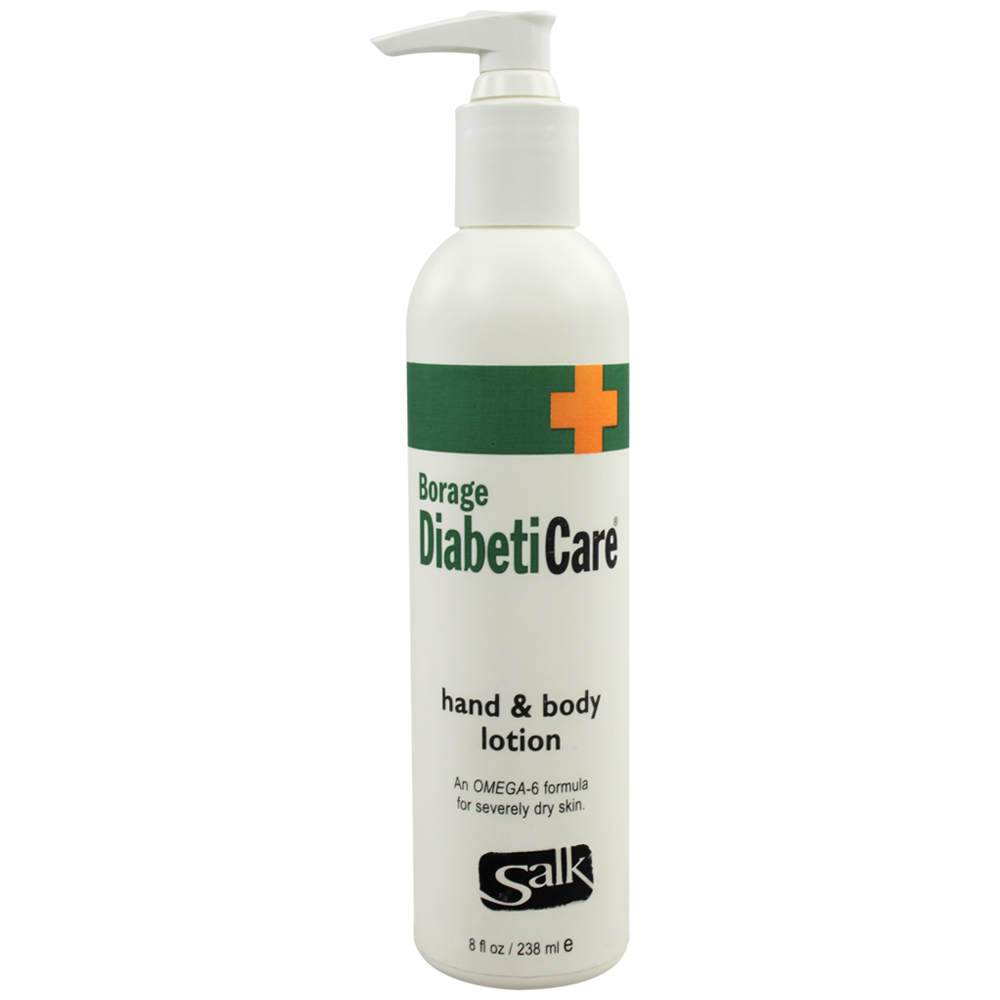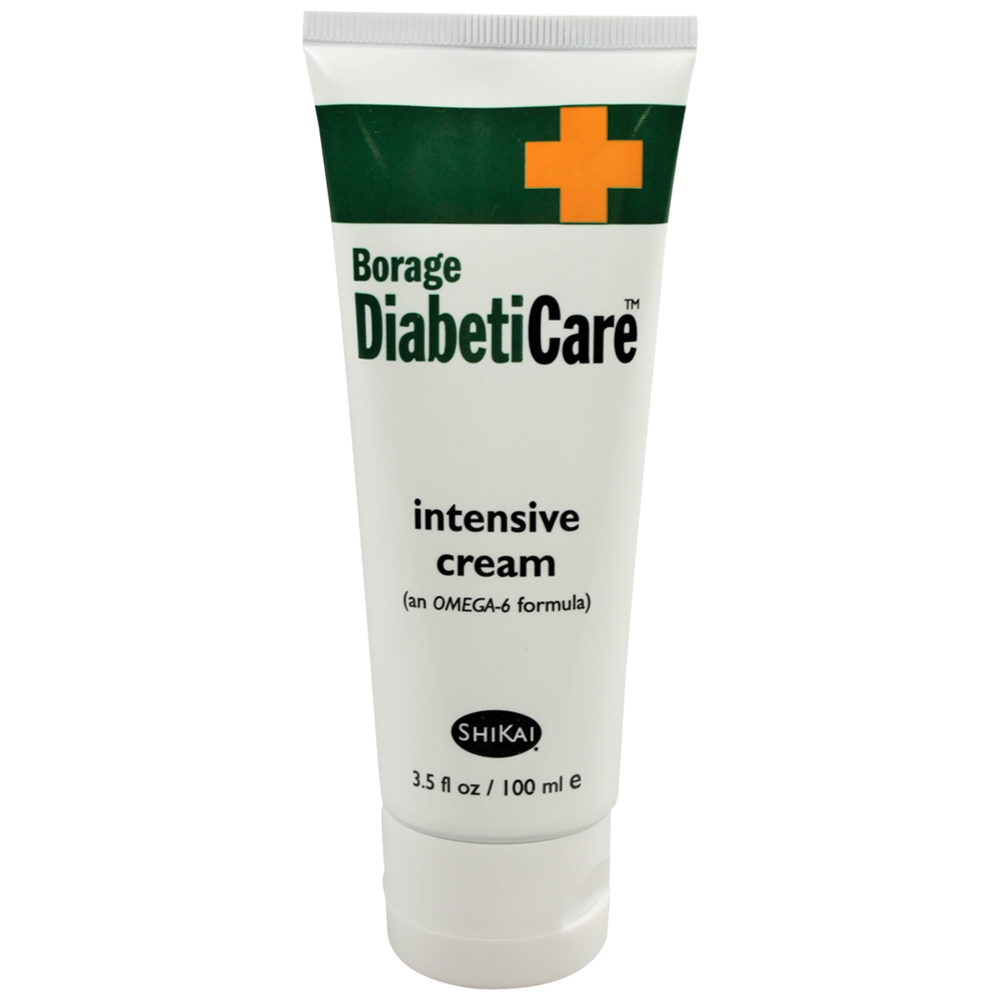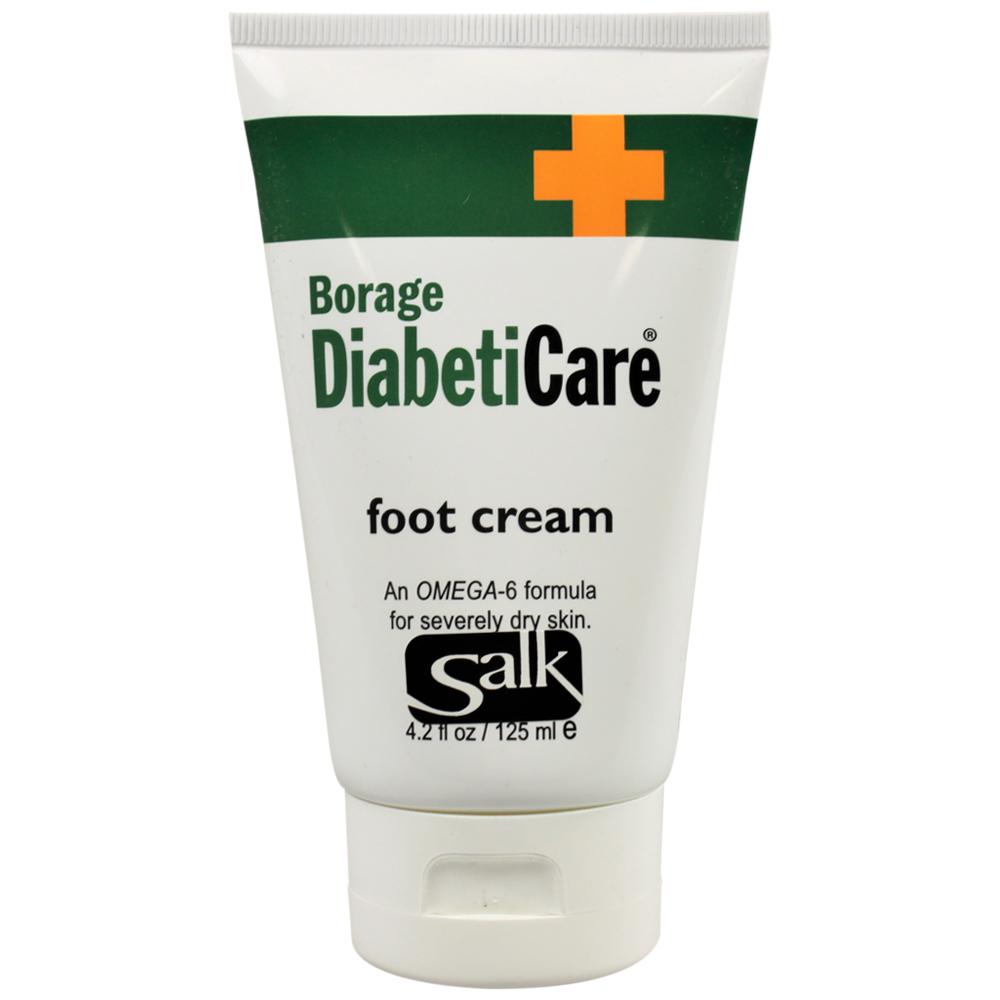
Borage Diabeticare Hand & Body Lotion
DiabetiCare Hand and Body Lotion can be used to soothe dry, cracked skin and promote the growth of healthy new skin cells, thanks to high

People with diabetes often experience dry skin, which can be uncomfortable and even lead to more serious skin conditions. There are several factors that can contribute to dry skin in people with diabetes, including:
It is important for people with diabetes to take steps to prevent and treat dry skin to avoid more serious skin conditions. This includes keeping blood sugar levels under control, staying hydrated, and using moisturizers and other skin care products specifically designed for people with diabetes.
Diabetic skin problems can manifest in different ways, and the symptoms can vary depending on the type of skin condition a person has. However, there are some common symptoms that people with diabetes may experience, which can be a sign of skin problems:
It’s important to note that not everyone with diabetes will experience skin problems, and some people may have different symptoms than those listed above.
If a person with diabetes notices any changes in their skin, they should talk to their healthcare provider. Early diagnosis and treatment of skin problems can help prevent complications and improve overall health.
One of the most common complications of diabetic dry skin is skin infections. When the skin is dry and cracked, it can become more susceptible to bacterial and fungal infections. These infections can be difficult to treat and can lead to more serious problems if left untreated.
In addition to skin infections, diabetic dry skin can also lead to foot ulcers. Foot ulcers are open sores that can develop on the feet of people with diabetes. They can be painful and can lead to serious complications if gone untreated.
Another potential complication of diabetic dry skin is diabetic dermopathy, a skin condition that causes brown, scaly patches on the skin. While diabetic dermopathy is not usually a serious condition, it can be a sign of more severe skin problems.
To prevent these complications, it is important for people with diabetes to take care of their skin. If a person with diabetes notices any changes in their skin, such as dryness, itching, or redness, they should see a doctor or dermatologist for evaluation and treatment.
Diabetics can manage dry skin by following a few simple tips:
By following these tips, diabetics can help manage dry skin and prevent more serious skin problems from developing.
One lotion that has received positive reviews from customers is Sween 24 Once a Day Cream. This lotion uses a hydrating, moisturizing formula to soothe dry, chapped or chafed skin and lips. It just needs to be applied once per day for relief. Customers have reported that it is very soothing and works well to improve their dry skin.
It is important to note that everyone’s skin is different, and what works for one person may not work for another. That’s why Medical Monks offers a comprehensive catalog of skincare products, encompassing a range of lotions and creams from reputable manufacturers. This ensures you can select the ideal product tailored to your unique needs.
Note that it’s always a good idea to consult with a dermatologist or healthcare provider before trying a new lotion.
People with diabetes are more prone to skin complications, including dry skin, infections, and wounds that heal slowly. These complications can be prevented by taking good care of your skin. Here are some tips to help prevent diabetic skin complications:
Wash your skin with a mild soap and lukewarm water. Avoid hot water, which can strip your skin of natural oils and make it dry. After washing, pat your skin dry with a soft towel. Don’t rub your skin, as it can irritate and damage it.
Apply a good quality moisturizer to your skin after washing and drying it. Look for a moisturizer that contains ingredients like urea, lactic acid, or glycerin, which can help hydrate your skin and keep it soft and supple. As mentioned earlier, the Sween 24 Once a Day Cream is a product that has received positive reviews for this purpose.
Too much exposure to the sun can damage your skin and make it dry. Use a sunscreen with an SPF of 30 or higher to protect your skin from harmful UV rays. Wear protective clothing, such as long-sleeved shirts, pants, and hats, when you’re outside.
Check your skin regularly for any signs of dryness, cracks, or wounds. If you notice any changes, such as redness, swelling, or itching, contact your healthcare provider right away.
High blood sugar levels can damage your blood vessels and nerves, which can lead to skin complications. Manage your blood sugar levels by following your diabetes treatment plan, including taking your medications as prescribed, eating a healthy diet, and staying physically active

DiabetiCare Hand and Body Lotion can be used to soothe dry, cracked skin and promote the growth of healthy new skin cells, thanks to high

Borage DiabetiCare Intensive Cream from Salk relieves dry cracked skin in just days and promotes the growth of healthy new skin cells for longterm benefits

Salk Borage DiabetiCare Foot Cream, Latex-free. Borage diabetic foot cream provides fast, soothing relief to severely dry skin on feet. It is easily applies omega-6

Sween 24 is a moisturizing cream formulated with dimethicone to soothe dry, chapped or chafed skin and lips for up to 24 hours. As both
